Frederick Stock
George Nelidoff
My parents were Frederick and Lorraine Wolfe. My father was the eldest of two sons of Vera and Alfred Wolfe, my grandparents. Vera was the only daughter of Frederick and Elisabeth Stock, my great-grandparents.
I have often been asked if I heard a lot of Frederick Stock stories growing up in Colorado, but unfortunately not. Stock was a formal photo on the wall with intensely piercing eyes. After my father died on March 13, 1989, I found a bundle of photographs and a packet of letters from Stock to my grandmother, his daughter Vera. The letters were full of cartoon characters and love. I was intrigued and wondered if Chicago knew that side of Stock.
A short time later, I was listening to the Colorado Springs Philharmonic on the radio. Henry Fogel, then executive director of the Chicago Symphony Orchestra, was in town hosting their radiothon fundraiser. I reached out to him, and he said the CSO was preparing for its centennial season (1990-91), and they had been searching for my grandmother to invite her to Chicago for the festivities. I let him know that, unfortunately, she had died in January 1975. So, instead, Henry invited me to attend several events to celebrate the conclusion of the CSO’s centennial.
I traveled to Chicago for the first time with my oldest son, and we had the privilege of representing the Stock family. It was a whirlwind of activities, from attending the gala dinner with Theodore Thomas’s grandson and his wife, seeing three CSO music directors — Daniel Barenboim, Sir Georg Solti, and Rafael Kubelik — conducting on the same concert, having lunch with Lady Solti, attending the rededication of the Spirit of Music statue (the Theodore Thomas memorial, at the corner of Balbo and Michigan), seeing Stock’s full-size painting in the stairwell that leads up to the ballroom, and standing on the stage to see Orchestra Hall as Stock saw it. I was practically speechless.
I discovered that a biography about Stock had not been written, so I began a project to gather as much information as I could. The Glessner journals were an incredible source of information, as Stock wrote hundreds of letters to them. While Stock was music director, he and his wife Elisabeth were guests at the Glessner home on an almost weekly basis, joining them for holidays and special events. Frederick and Elisabeth also often spent time at the Glessner farm, The Rocks, in New Hampshire.
It has been a wonderful experience doing research and I am honored to present another side of Stock, his family story.
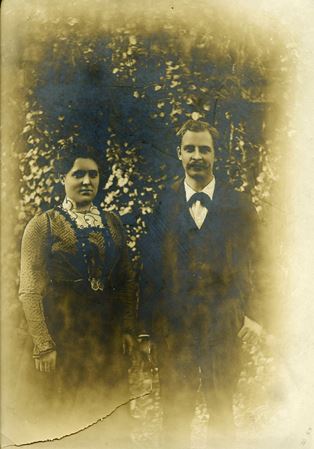
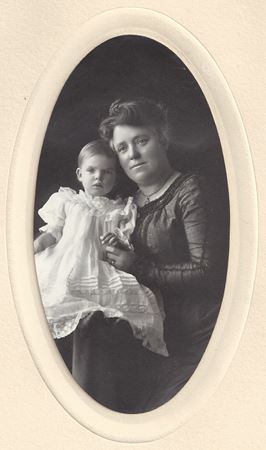
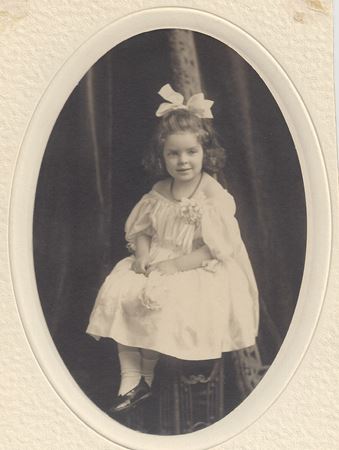
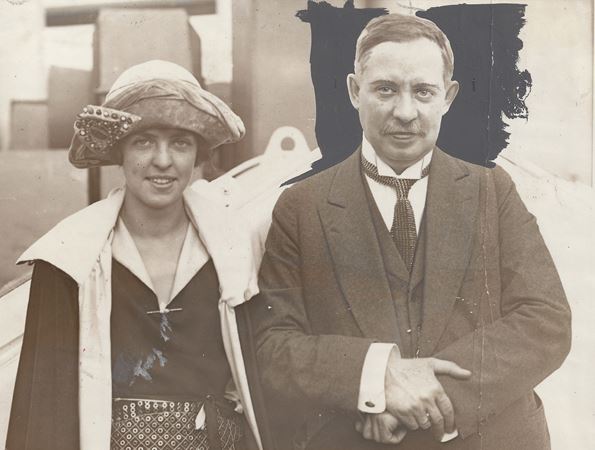
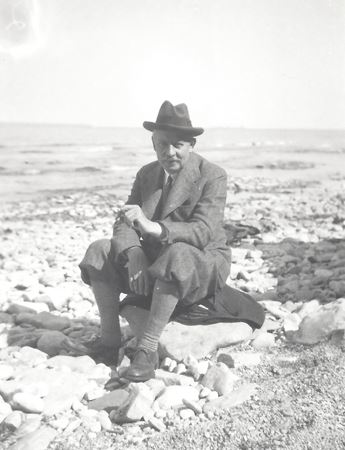
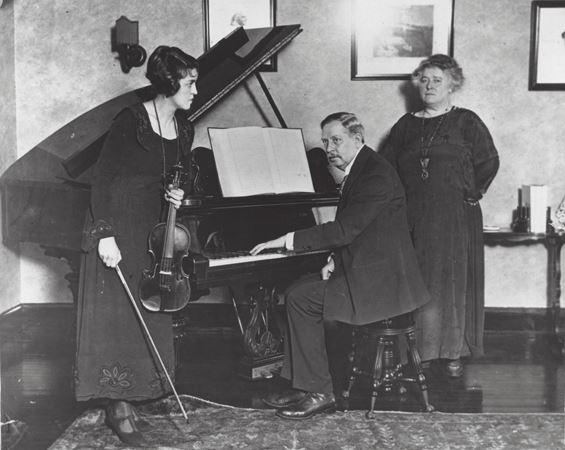
Frederick Wilhelm August Stock was born on November 11, 1872, in Jülich, Germany, a small fortress town about thirty miles west of Cologne. He was the second son of Frederick Wilhelm Carl Stock, a Kapellmeister in the Prussian Army and Maria Lein. Frederick’s mother died on June 9, 1874, apparently never recovering from complications during his birth. His father remarried in 1887 to Johanna Maria Louise Bister and they had three more children—Maria, Louise, and Wilhelm.
In 1887, at the age of 14, Frederick won a scholarship to the Cologne Conservatory. His teachers included conductor Franz Wüllner and composer Englebert Humperdink, and one of his fellow students was Wilhelm Mengleberg, the famous Dutch conductor. While a student, he also became a member of the Gürzenich Orchestra Cologne.
In 1895, Theodore Thomas — the CSO’s founding music director — was in Germany, and 22-year-old Frederick auditioned for him in Cologne, playing Bruch’s First Violin Concerto. Thomas told Stock if he made his way to America, he would have a position in the Chicago Orchestra. On September 22, 1895, Stock sailed from Hamburg to New York on the ship Prussia, and on that same voyage was Elisabeth Musculus, who would become his wife in May 1896. Upon his arrival in Chicago, Stock was given the position of assistant principal viola.
In Chicago on May 8, 1902, Frederick and Elisabeth welcomed a daughter, Vera Fredericka Stock. She would be their only child.
According to ocean liner passenger lists, Frederick returned to Europe at least 25 times. He met with the musical leaders of the European scene, reviewed new scores, and visited family. Most often Elisabeth accompanied him on his travels, and Vera also joined them several times.
In late September 1912, Frederick traveled on the Lusitania from Liverpool to New York. In a letter to the Glessners, he wrote “This is the finest boat I ever travelled on, very comfortable indeed. A trip on a boat like this spoils one for anything else, because it is the most delightful thing imaginable.” And in a letter dated September 15, 1920, “One of the novelties I brought from London is called The Planets composed by Gustav (von) Holst . . . Don’t be afraid of all those novelties. I shall stick them into the programs at places where you won’t find them, but they will be there just the same.”
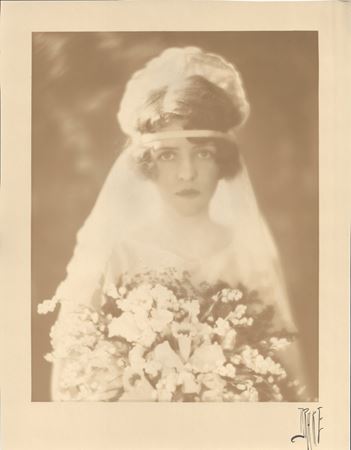
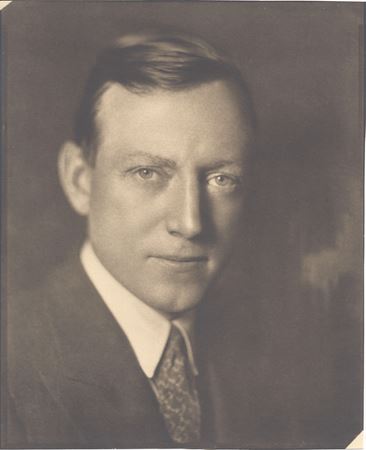
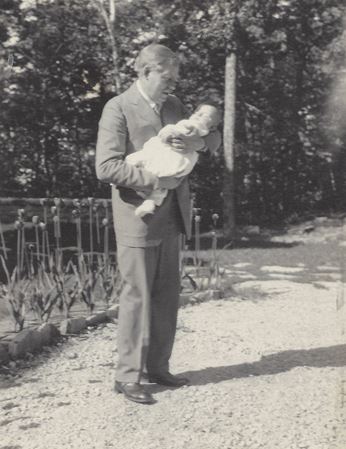
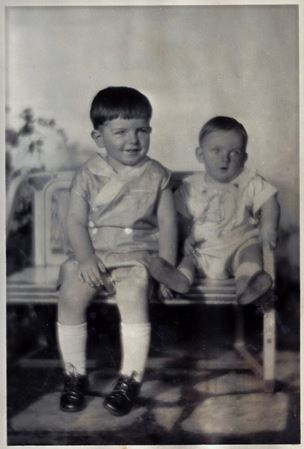
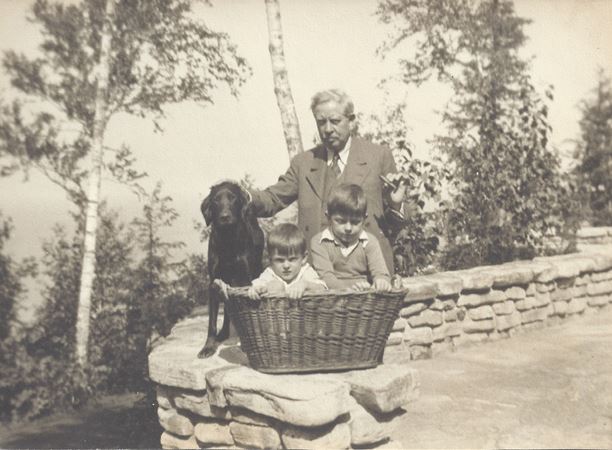
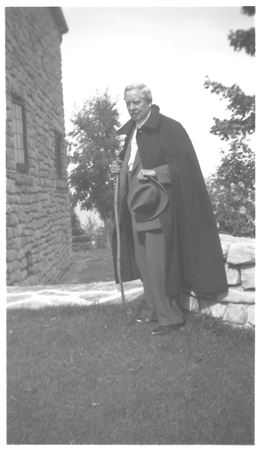
On April 8, 1924, in what was described as the “social event of the year,” Vera married Alfred Morris Wolfe, and Fourth Presbyterian Church on Michigan Avenue was filled to capacity. Soprano Claire Dux, a frequent CSO soloist, sang Stock’s “A Love Letter” with Eric DeLamarter at the organ. The reception was held nearby at the Drake Hotel.
On January 18, 1928, Frederick and Elisabeth’s first grandson, Frederick Stock Wolfe (my father), was born. On June 28, 1929, their second grandchild was born, Alfred “Murph” Morris Wolfe, Jr.
In 1927, the Stocks started building a vacation home in Door County, Wisconsin, overlooking Sister Bay. It was designed by Chicago architect, William Bernhard, who the Stocks undoubtedly met at the Glessner home. This beloved home was a welcome retreat from life in Chicago where the Stock family would spend summers and holidays.
The CSO’s 1942-43 season began with Stock’s usual robustness and enthusiasm, but on October 20, he died suddenly of a heart attack at home at 1325 North Astor Street. During the intermission of the New York Philharmonic’s broadcast on November, 1, Deems Taylor spoke the following: “Let us not again let men like this go, without telling them that we love them. They would appreciate our love. We use many words on Hitler and like creatures, but never the least word to men who have made us better human beings, who have given us a bulwark against cruelty, bigotry, and stupidity. We have all, all good and bewildered people, died a little with Mr. Stock.”
Vera’s husband Alfred Wolfe was originally from Colorado Springs, and after Frederick’s death, they moved Elisabeth and the grandchildren to Colorado. Elisabeth died on August 15, 1951, and Vera and Murph brought her ashes to Chicago. She was interred in the crypt with her beloved husband in the mausoleum at Rosehill Cemetery.
In June 1994, Daniel Barenboim and the Chicago Symphony Orchestra were on tour in Europe, and several musicians traveled to Jülich to attend a plaque unveiling at the Citadel, commemorating Stock’s birth. The mayor of Julich and I unveiled the plaque, which read:
In memory of the conductor and composer
Friedrich Wilhelm August Stock
November 11, 1872 (Jülich) – October 20, 1942 (Chicago)
The son of a Prussian military band master stationed in the citadel, he studied at the Cologne Conservatory (1891) and then joined the Gürzenich Orchestra Cologne as a violinist.
In 1895 he was hired as a violist at the Chicago Symphony Orchestra.
In 1905 he became music director and, over the next 37 years, led the CSO to international fame.
The City of Jülich
Plaque in Jülich, Germany, dedicated in June 1994
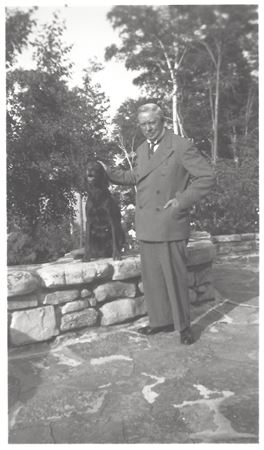
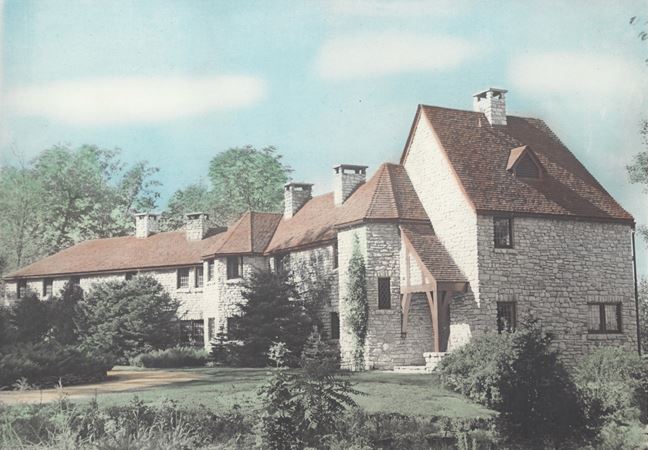

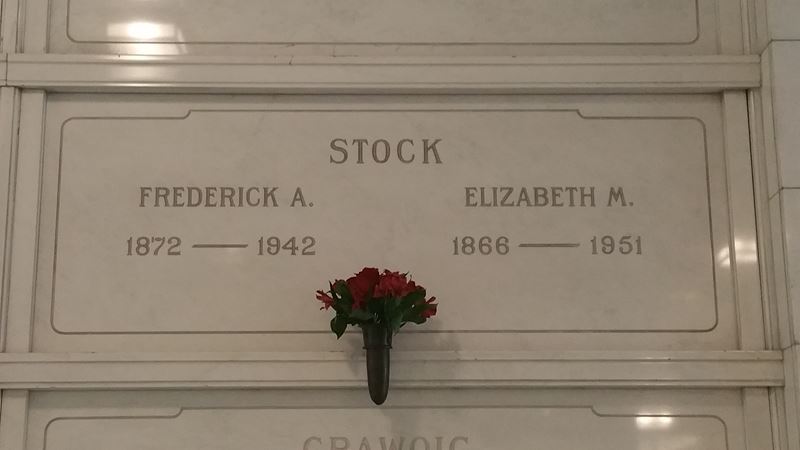
This article also appears here.



